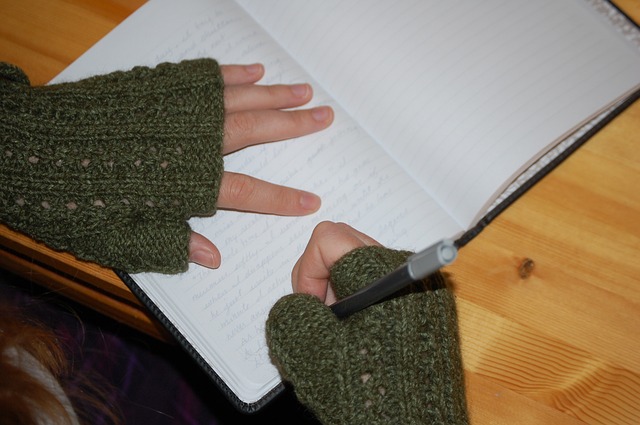As a new bride, I moved to America with my U.S. soldier husband.
“America?”, my grandfather asked me, shaking his head, “It’ll be tough in America!”
I disagreed with him. I had spent the past three years living and traveling in Asia and thought that moving to America—a westernised, anglophone country—would be easy. But my grandfather was right: it was going to be tough in America. I had only been there for a few weeks when I started to wonder if we spoke the same language after all.
I struggled to make sense of my new home and my role as a wife. I had been cut from a different mould, that seemed certain. I felt like an alien. I had no family or friends. I had no deep connections that I so craved. When my husband deployed to Iraq I found myself sinking deeper into a dark hole. Being a wife felt foreign, an Army Wife even more so. Everything in my life had been shaken up. Everything by which I defined myself was gone. I didn’t know who I was or who I wanted to be.
I had nothing.
Except words.
Writing became my yoga and my meditation. Through writing I bled and I probed and I discovered and I connected.
When we write we transform ideas into language. When we write, we share information, knowledge and experience. The act of writing is a gift to ourselves and to others. Through writing we have the power to explore and understand our feelings, to heal from sadness and trauma, and to reflect. Through writing we can manifest our wildest dreams, preserve our memories, our histories and connect, through our stories, to the stories of others.
I am no longer living in America, and I’m no longer married to the soldier, but words continue to be my lifeline.
This is why I write, and why I think you should too.
1. I write to clear out the junk
Julia Cameron, in her book The Artist’s Way, suggests that one of the most valuable creative tools we have at our disposal is morning pages. Her advice is to write, long hand, three full pages first thing in the morning. These pages are a stream of consciousness. The morning pages are not written to be read. They don’t have to be pretty. They just have to be done. It’s a way to clear out the junk before starting your day.
Julia Cameron recommends this practice be done first thing in the morning, and I agree that it is an excellent addition to a daily morning routine. If it doesn’t suit you to do it in the mornings, however, writing at any time of the day is cleansing.
2. I write to clarify and explore my feelings
It is often difficult to establish exactly what we think without putting it into words. I see the struggle in my students when I teach writing—they don’t start writing until they know what they want to say. I encourage them to just put the pen on the paper and begin as the act of writing itself will help them to figure out what it is they want to say.
Thoughts are far more flexible than text. The ideas in our heads are part of a huge puzzle with uncountable connections— not linear like writing. Through the act of writing we are better able to articulate, organize and understand what’s going on upstairs.
If you’re confused about what’s going on inside, try putting it down on paper. Don’t worry about the flow of the words, the purpose is not to write poetry; the purpose is simply to write.
3. I write to heal and grow
Research by James Pennebaker (and other studies since) shows that writing about life’s stressors helps us to heal from both physical and emotional trauma. Yes, the act of writing after a traumatic event can produce measurable changes in both physical and mental health. Emotional writing can also affect peoples sleep habits, work efficiency and how they connect with others.
I find that writing can help me solve problems. Writing frees my buried emotions and thoughts and releases them. Perhaps it will help you, too. If you have suffered, write down your story. All of it.
4. I write to manifest my dreams
Studies have shown that we are 42 percent more likely to achieve our goals if we write them down. Writing down our goals of course isn’t the end, but it’s a great beginning. More than just listing our goals, though, writing down our dreams aids in their manifestation. The act of writing makes our innermost desires clear, brings attention to them, and gives them the thought and consideration needed to inspire action towards making those dreams a reality.
You can start small, with a daily to do list, then grow from there. What are your goals for the week, month, or year? What are your long term goals? What do you want? Write it down.
5. I write to share
“Story telling is an act of love. Sharing stories connects us to each other. When I tell my story it connects to your story “ ~ Njoki McElroy, Teacher and Storyteller
It takes courage to tell our stories, in their entirety and in their truth. It is easy for us to share our success stories. And such stories are important. But our stories of loss and failure and shame are far less easy to share, and these stories are powerful too. The feeling of failure is a lonely, lonely place. But when we reach out and share our stories we realize that we are not alone. There is so much criticism and judgment in our world. We are shamed into keeping quiet. This makes it even more important for us to put our vulnerability on the line and open up. Our stories won’t resonate with everyone, but they will resonate with someone. And if we can make one person feel like they are not alone, then isn’t the story worth telling?
What is your story? Write about who you are, write about what you know. Write your story and share it. There is power and freedom in connection.
6. I write to reflect
John Dewey said, “we do not learn from experience, we learn from reflecting on experience”.
What gets us from experience to understanding is reflection. Through self reflection we can develop our skills. Rather than doing things the way we have always done them, reflection allows us to question our choices and our tools and make room for improvements. It is very easy for us to become stuck in routines that don’t work for us. Self reflection can help us to identify the changes we can make. I find that getting things down on paper (as opposed to letting them swim around in my head) makes it easier for my thoughts to marinate and simmer helping me identify problems or what is important. This process is an important part of learning and personal growth.
Try starting a journal. Write in it every day. As you write you will notice yourself ruminating on events. Observe how the process allows you to reflect on your experiences in a different way.
7. I write to give
They say that actions speak louder than words, and this is true, but language is a beautiful gift. There is nothing more lovely than words that pour straight from your heart and into the heart of another.
How long has it been since you’ve written a letter? A thank you letter, a love letter, or a letter just to say hello? Pick up a pen and write something for someone you love today!
~
Relephant:
8 Things I’ve Learned from Writing for elephant journal.
~
Author: Cath Witten
Editor: Caroline Beaton
Image: Pixabay
 Share on bsky
Share on bsky




Read 0 comments and reply